Description
Fresh Kayon Mountain has become a tradition around here, marks one of our favorite times of the year, new Ethiopian season!
First top grade natural to sneak through for the new 2024/25 season! The Kayon Mountain Coffee Farm is 500 hectares with about 300 hectares planted in coffee and has been owned and operated by Ismael Hassen Aredo and his family since 2012. It is located 510 kilometers south of Addis Ababa, and the property crosses the border of two villages—Taro and Sewana—located in the Oromia region, in the Guji zone of the Shakiso district of Ethiopia.
Ismael oversees a staff of 25 permanent full-time and 300 seasonal employees, and the farm management offers free transportation services as well as financial support for building schools and administration buildings for the community. The farm competes with a nearby mining village for seasonal workers, so Ismael and his family tend to pay higher wages to their pickers in order to incentivize them returning year after year. I had the pleasure of meeting Ismael personally this season on my Ethiopian trip Feb 2025. A wonderful operation and super tasty coffee. We have a few more Kayon Mountain lots incoming that we are sure you will love as well.
Tasting Notes:
Clean, bright, fruity and sweet with a very diverse flavor set. Stone and darker fruit, citrus & floral, and spiced chocolate tones are the main flavors one can see in this cup, either accentuated or muted depending on roast level. Nice jammy body will be seen in the medium to borderline dark roast mark. Very dependent on roast – lighter roasting gives much more of the citrus, red-fruit with just a hint of a spicy chocolaty factor, a much dryer finish. Darker roasts produce much more of a bakers chocolate cup with a hint of a strawberry like fruit note and good sweetness, far less acidic. A very enjoyable cup from light to dark.
Roasting Notes:
Classic natural processed, fairly even roasting (one can see a couple shades but they are close to each other) with high chaff. We liked it best right around a medium roast – not as bright or floral but developed a real nice fruit versus chocolate profile. Many lighter roast fans will like to take it lighter – 2 out of 6 here who tried it did like the lighter roasts better – super dark roasts will get pretty edgy but have very nice aromatics and a strong chocolaty smoky cup profile.
There are few entrances to Guji–a distant and heavily forested swath of land stretching southeast through the lower corner of the massive Oromia region–and none of these routes are short, or for the queasy, in any way. Guji is heavy with primary forest thanks to the Guji tribe, a part of Ethiopia’s vast and diverse Oromo nation, who have for generations organized and legislated to reduce mining and logging outfits in their area, in a struggle to conserve the land’s sacred canopy.
Compared to other coffee-heavy regions, large parts of Guji feel like prehistoric backwoods. Coffee farms in many parts of Guji begin at 2000 meters in elevation and tend to climb from there. The highland farming communities in this part of the country can be at turns Edenic in their natural purity, and startlingly remote.
Near the town of Taro, in the Odo Shakiso district, is Kayon Mountain, founded by Ismael Hassen, a native of Kercha district who was born and raised surrounded by Guji’s coffee culture. Kayon Mountain is a massive coffee estate with 500 planted hectares (well over 1000 acres) of select Ethiopian arabica cultivars. The coffee genetics were originally isolated and bred by the Jimma Agricultural Research Center, whose coffee agenda includes studying and distributing select indigenous cultivars of Ethiopian coffee to help domestic farms renew and remain disease-resistant as they evolve. 74110 and 74112 are some of the Center’s oldest, and are both descendants of heirloom varieties of coffee isolated from the Illubabor Zone, an historic coffee region in the West of Ethiopia—also a part of the Oromia Region.
Kayon Mountain is a standout, in many ways, among the broader landscape of Ethiopian coffee. To begin with, estates this large are rare in a country defined by its smallholder systems: there are over four million coffee farmers in Ethiopia and the average cultivation is a few hundred trees each. Next, Kayon Mountain exports its own coffee—a rare standing for farms of any size in Ethiopia—and as a result can bypass the Ethiopian Commodity Exchange auction entirely. Third, the estate was founded in 2012, when the Guji Zone government began carefully approving land grants to groups with ambitious organic farming plans that included the preservation of primary forest among their areas. So not only is the estate extremely young by Ethiopian standards, there is an environmental mandate built into their grant.
The Kayon Mountain team has increased production over the past seven harvests and is currently applying for an additional land grand to further expand their operation. In addition to their own planted land, the farm buys and processes cherry from 12 other local, larger farms which are also organic and Rainforest Alliance certified.
Throughout the harvest the estate is picking from 9am-5pm. Naturals are produced simply and carefully, by sorting for imperfections and slowly drying on raised beds in the sun. Drying cherry is constantly rotated and sorted by hand at the tables by a large staff. After dry-hulling the finished coffee, which Kayon Mountain also oversees, a final hand-sorting occurs prior to bagging. Naturals produced here tend to be delicately floral and sweet with dried rose, raspberry, strawberry, and milk chocolate.
Ethiopia’s Guji zone in many ways feels like the next generation of Ethiopian coffee. We see the marketplace itself evolving constantly in this country–the very exciting new wave of direct exports for one, the rise of private washing stations and boutique domestic buyers for another, and the foundation of modernized, large estates with quality and social justice equally at the forefront, setting management examples for producers worldwide. Guji itself however, as a place, a people, and a coffee, is like a newly emerged origin altogether. The forest-heavy zone with a conservationist spirit and uniquely candy-like coffees is getting its break now, and the world is better for it.
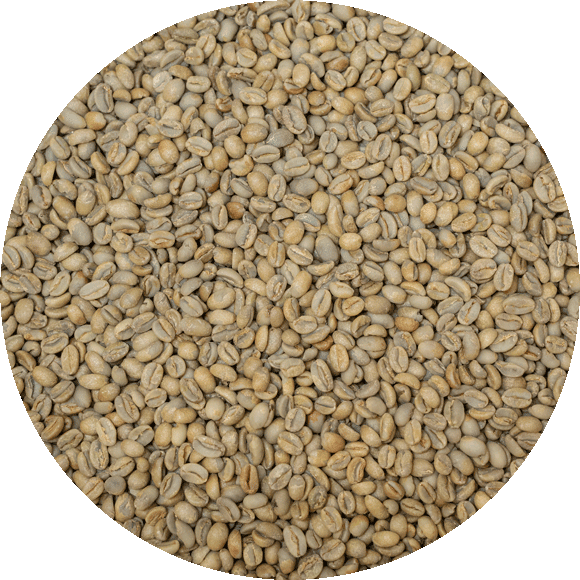
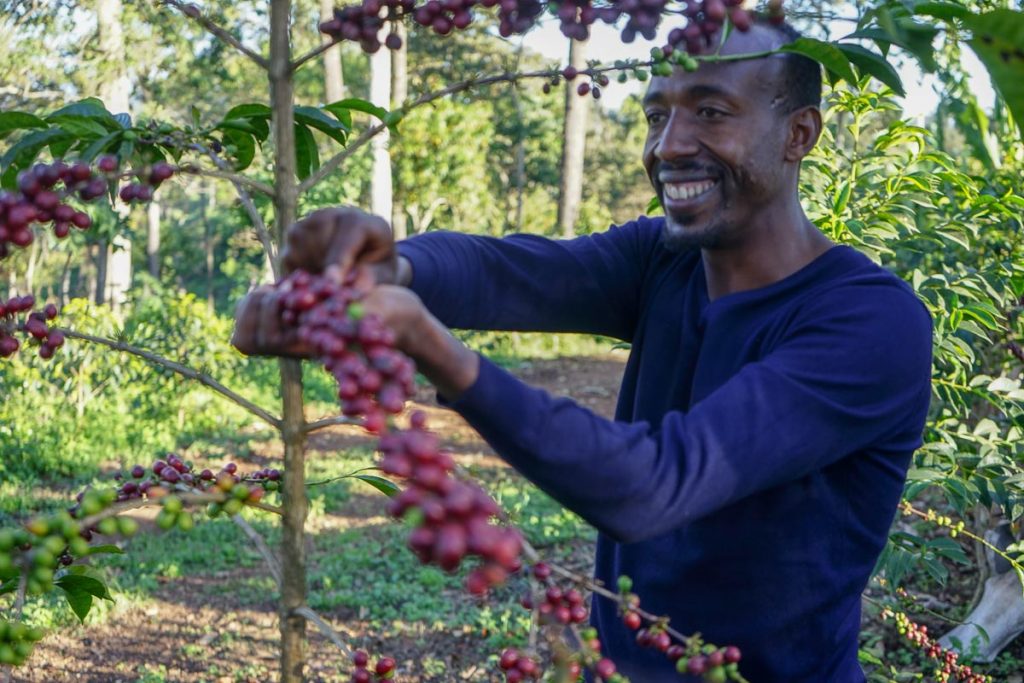
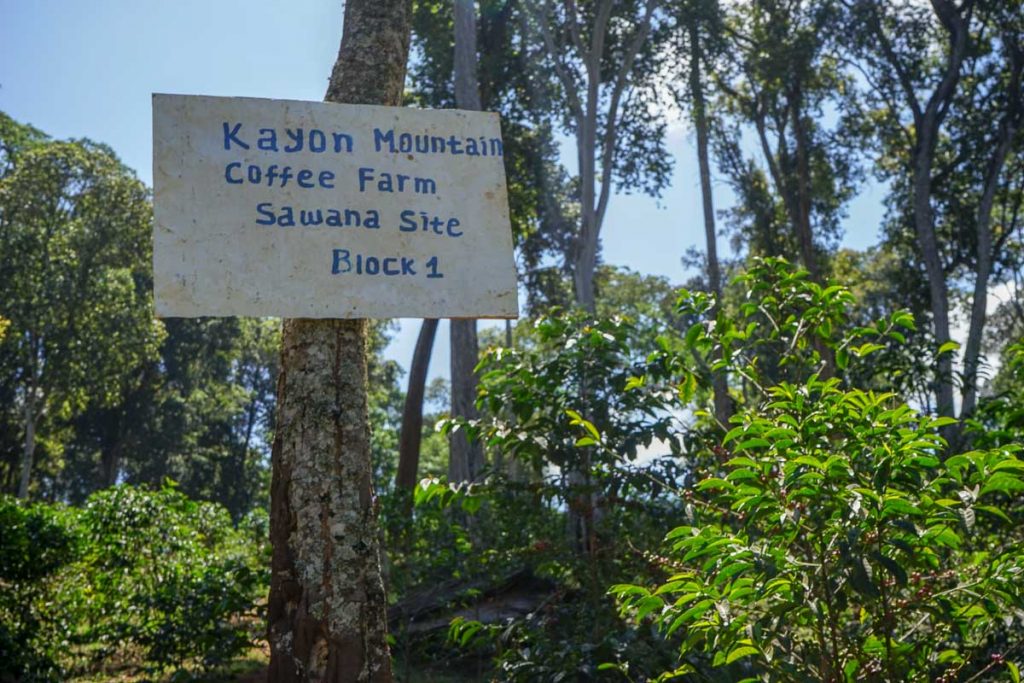
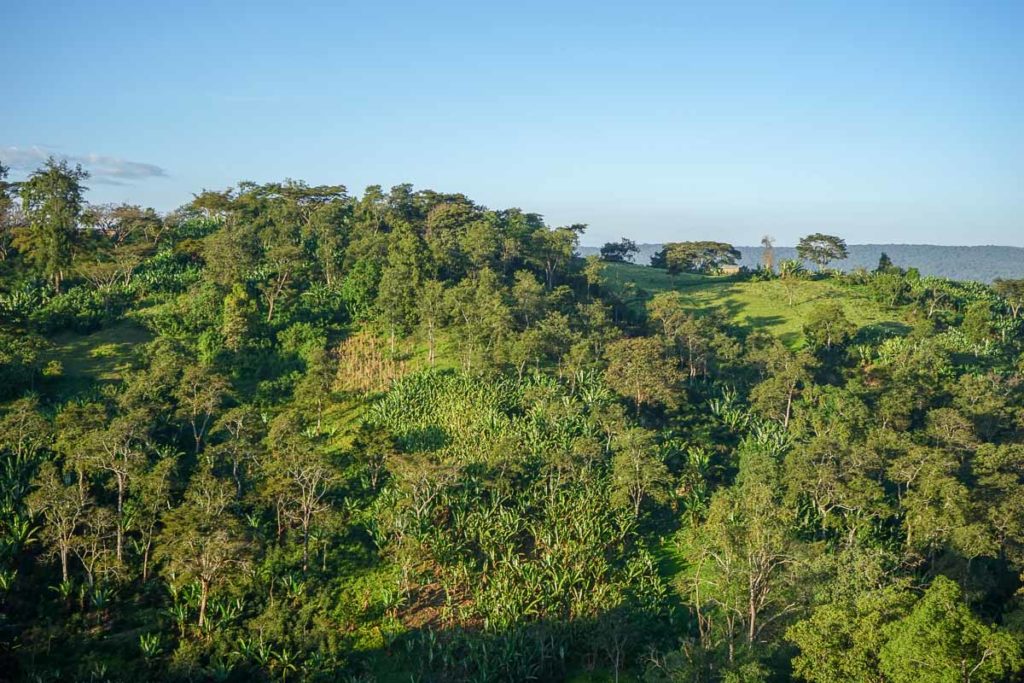
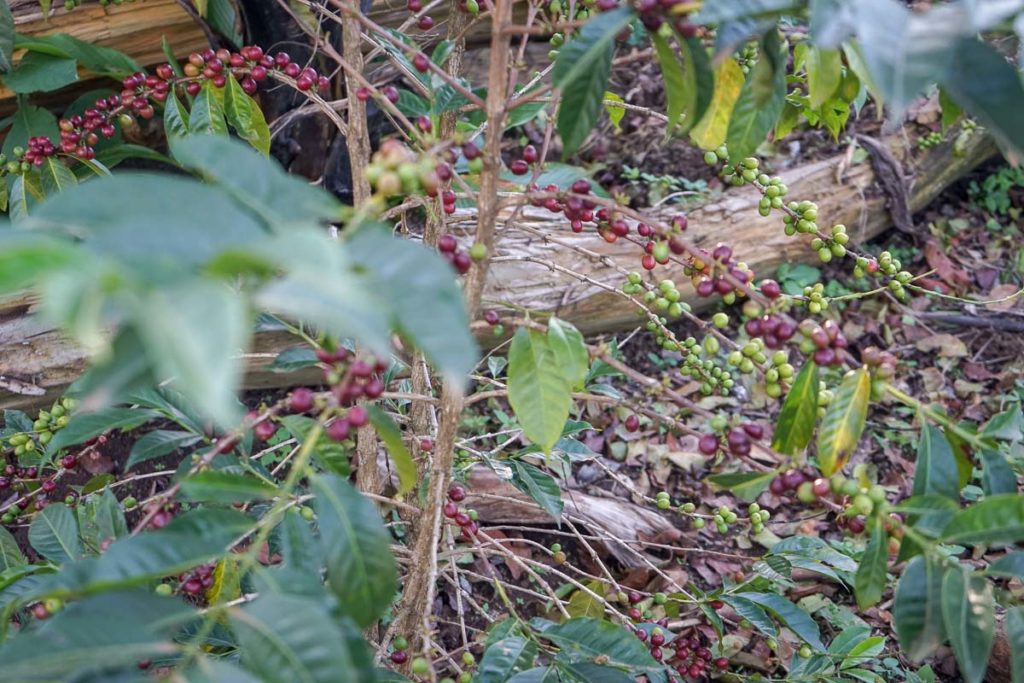
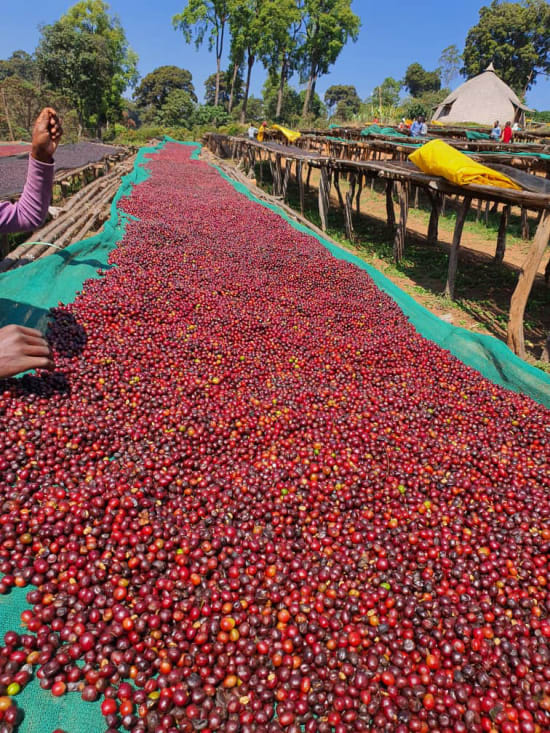
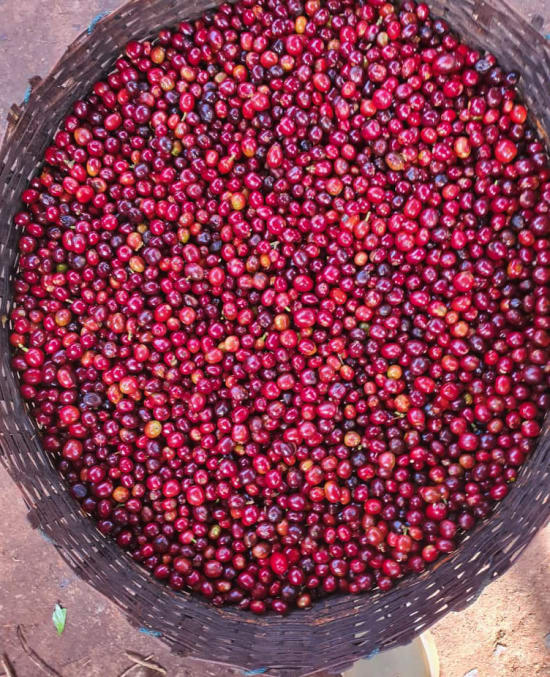
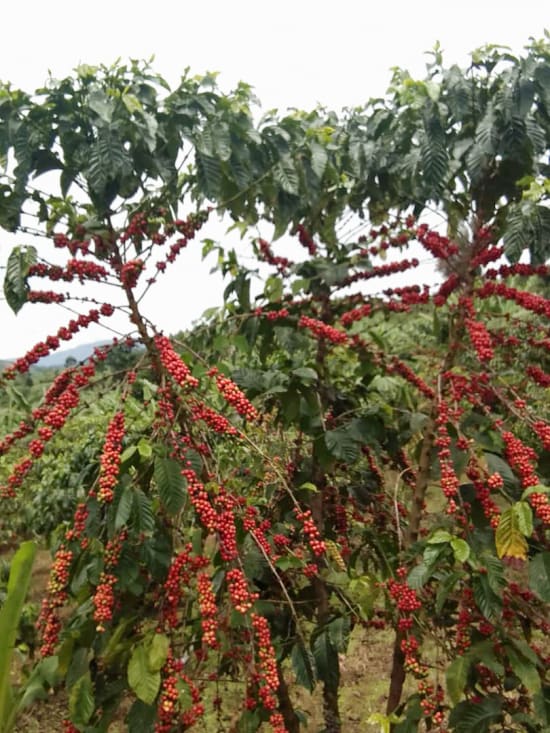
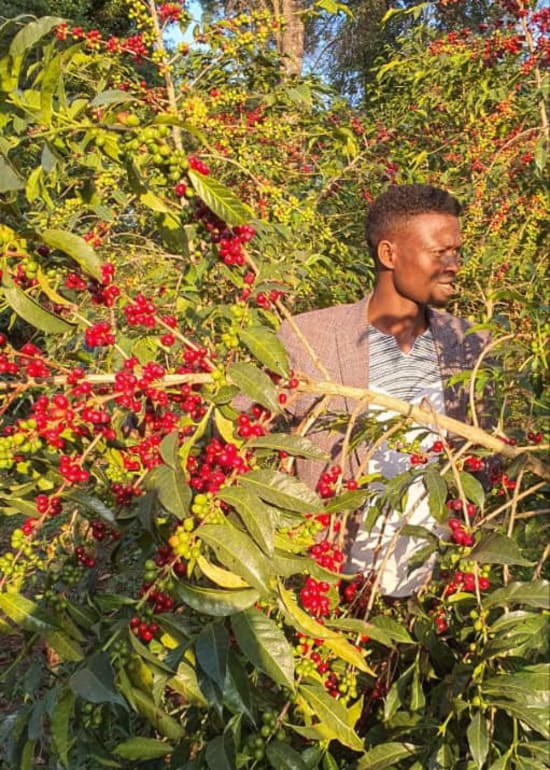
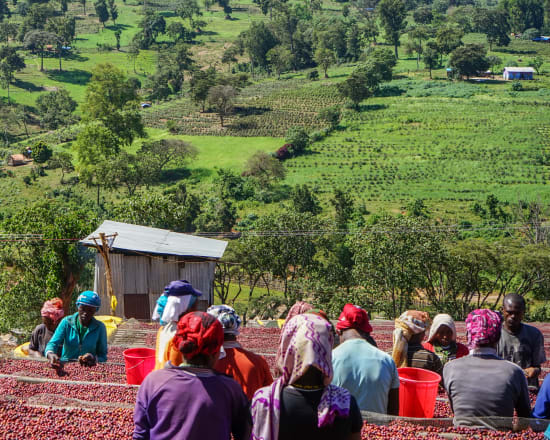
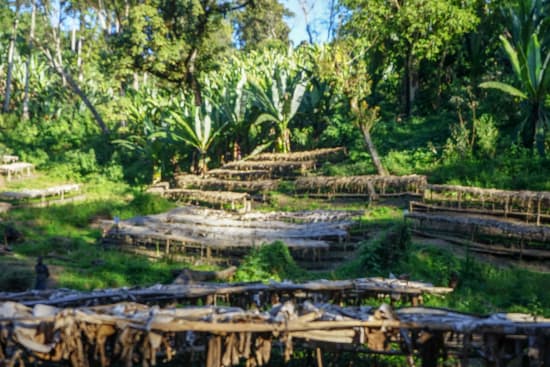
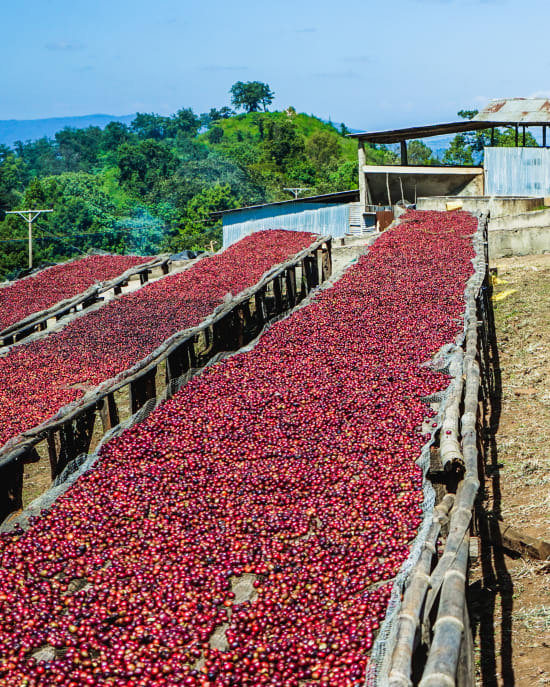
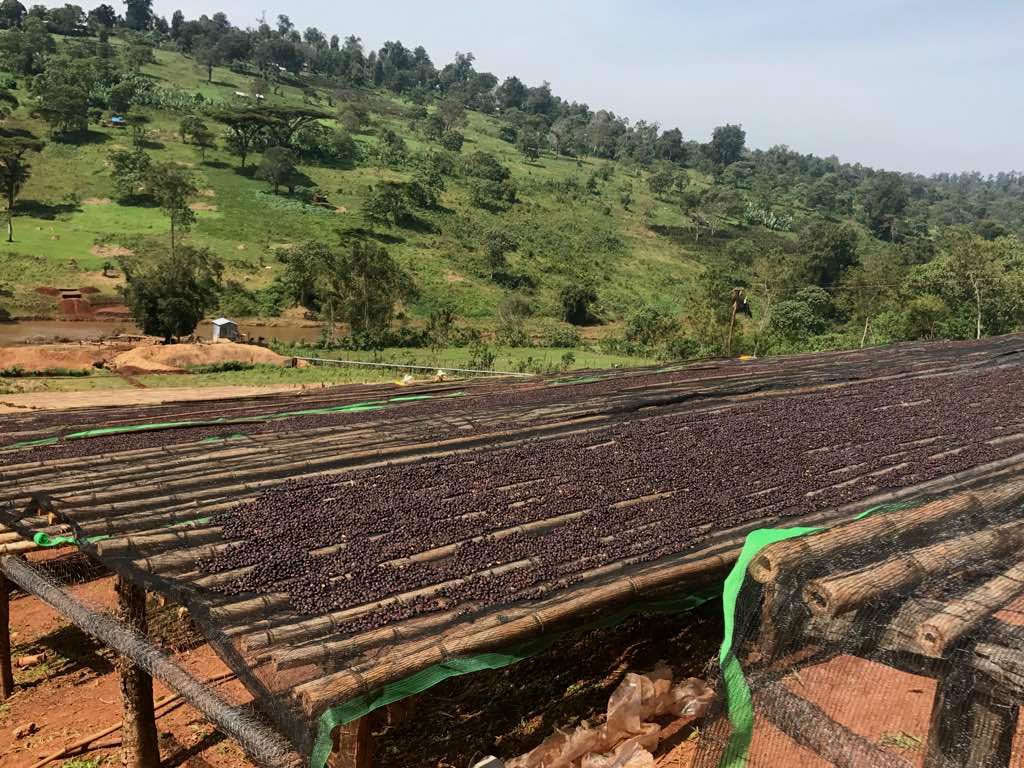
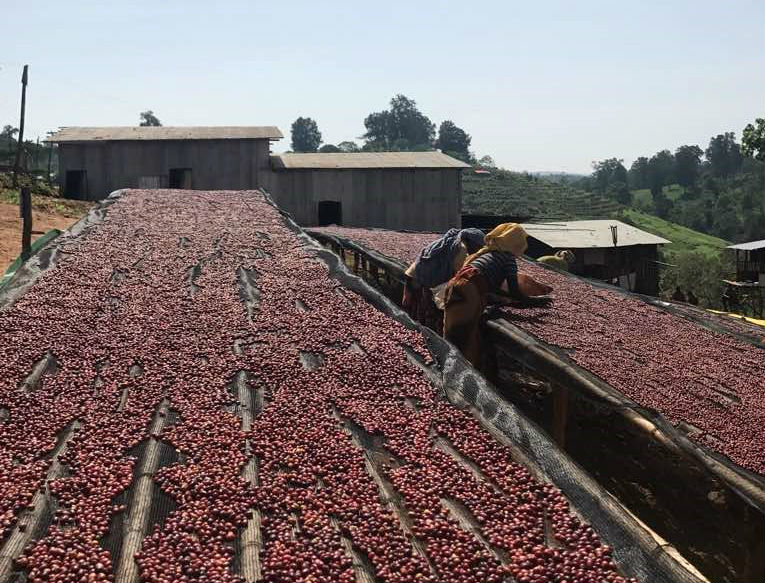
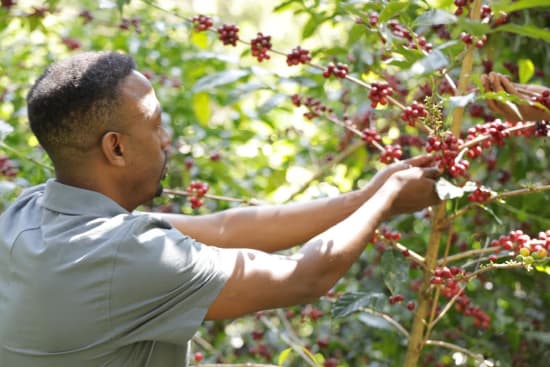
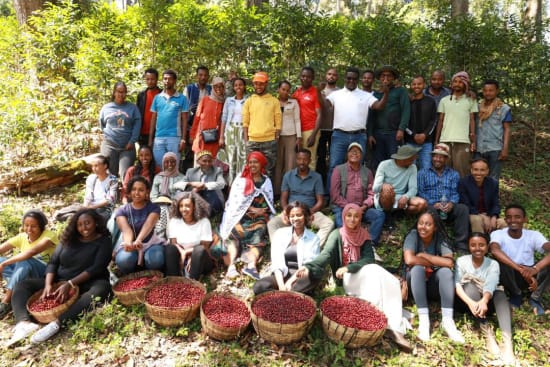
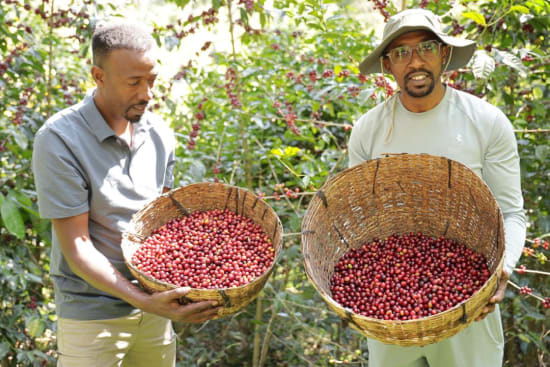
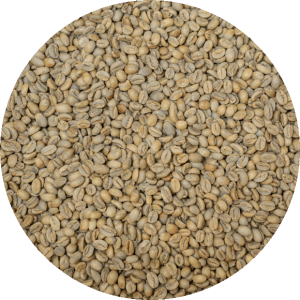
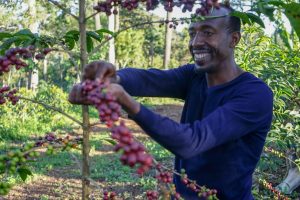
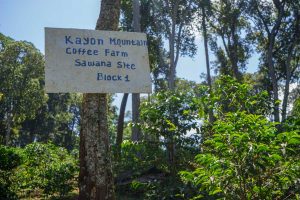
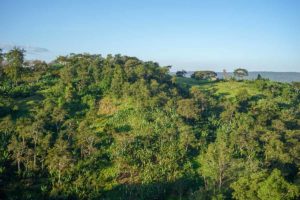
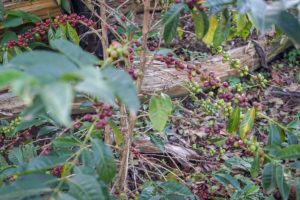
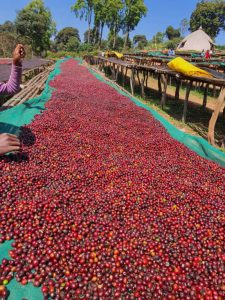
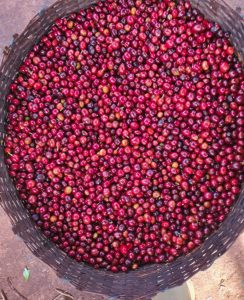
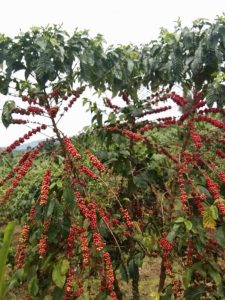
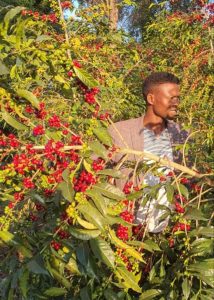
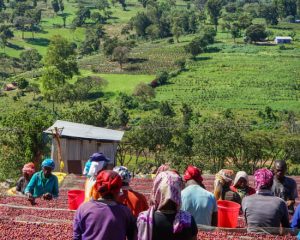
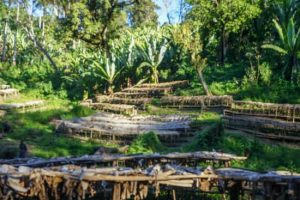
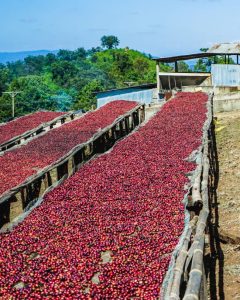
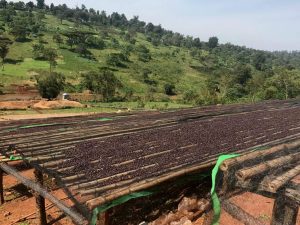
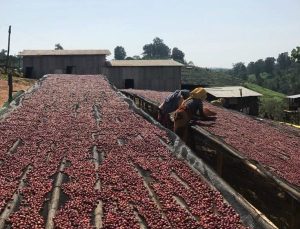
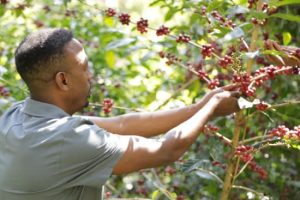
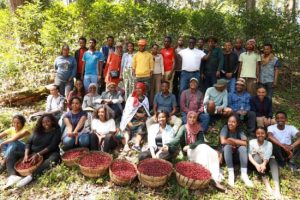
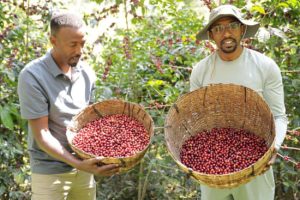
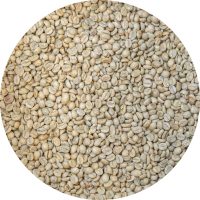




Chris H. –
This is some great coffee! At a medium roast, it is very sweet and smooth. Anything lighter would be too fruity for my preference. I found it to taste best using a pour over at a 20:1 ratio. Haven’t tried it for espresso yet, but will be soon!
Doug Cooper –
Wow, this coffee is good. I got a half pound sample with an order. I roasted some to just after first crack and it is delicious. I would like more!
danlange87 –
Very good! Bright and clean.
John Gross (verified owner) –
Very good coffee! My wife isn’t a huge coffee lover, but she loves this as a cold brew!
arazak (verified owner) –
This is nice but not a candidate for an espresso blend because it doesn’t play well with others! Extremely variable performance in the portafilter: one time out of ten it will pull with acceptable yield and extraction time; the other 90% it’s an unpredictable nightmare. Super-dense, especially at darker roasts, so it needs a significantly coarser grind than most other varieties, and even with that the extraction times in my La Marzocco machine often extend past the time cutoff without achieving a 2:1 pull volume – often it’s not even close (eg, 12g pull in 58 seconds from an 18g dose). If I were to put it together with other more conventional varieties either this would go hugely unextracted or the others over-extracted but either way it would be an unreliable mix. I’m relegating it to pour-over use only; not a criticism just an observation!
Rollin (verified owner) –
Heavy silty body. For espresso it’s like you took a bowl of cherries, let them ferment, blended them with their pit and all and this is the result. The thick extracted output means you have to get weird with your settings or grind coarser than usual but it is possible to get consistent results. I will order more next time and take better notes because there are some interesting flavors hiding in this one. Kind of a freak!
The Todd (verified owner) –
Very nice Ethiopian natural! I did a nice medium roast on my SR800 taking it just through first crack. With only 3 days of rest, I get lots of red fruit, jammy like cherry jam with a touch of strawberry, a very slight floral undertone when the cup is hot, turning slightly citric when the cup cools. Very clean, would definitely buy more!
W. Witkowski (verified owner) –
I ordered this just to try it. It’s a winner for me. It’s on the hurry up and reorder before it runs out. I’m not good with all the descriptions but I like the initial taste, the mouthfeel and the lingering aftertaste. I could be happy with this as a daily drinker.